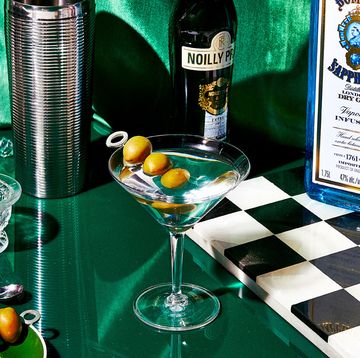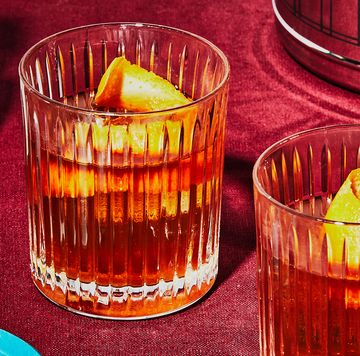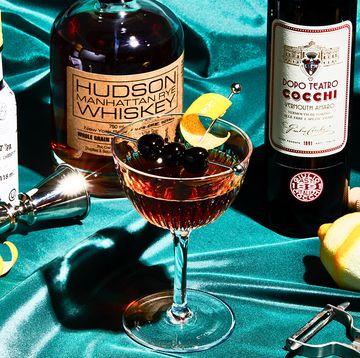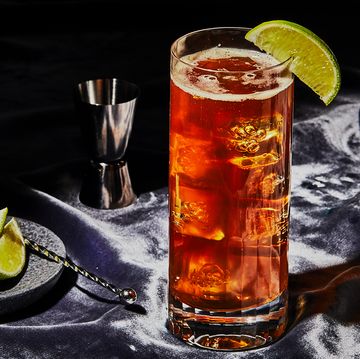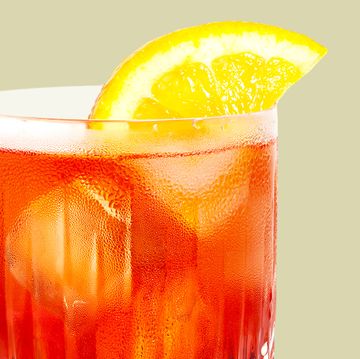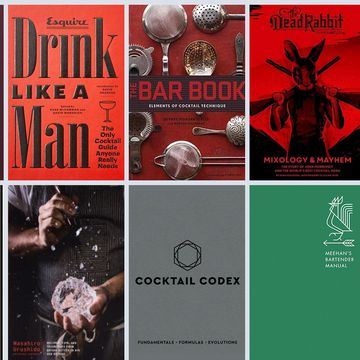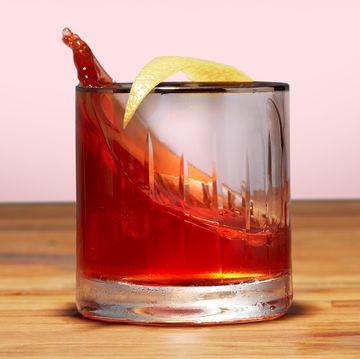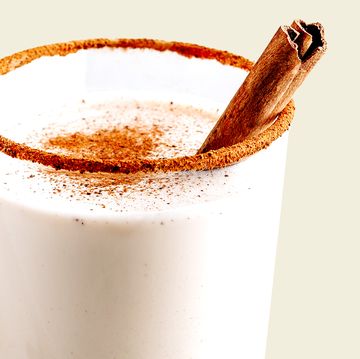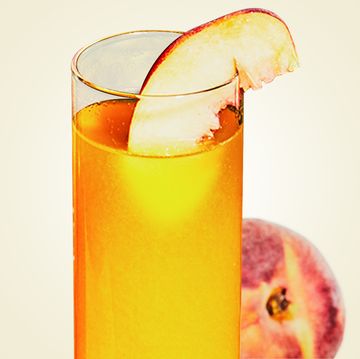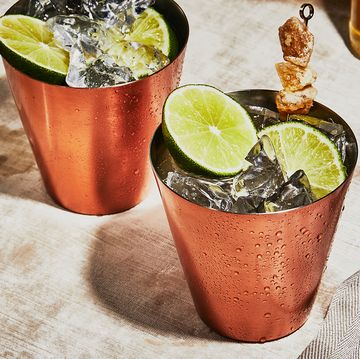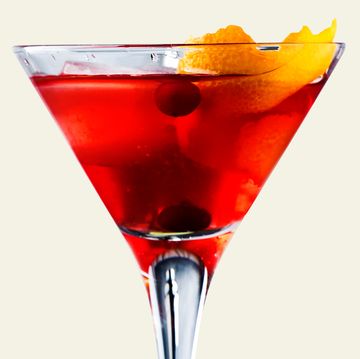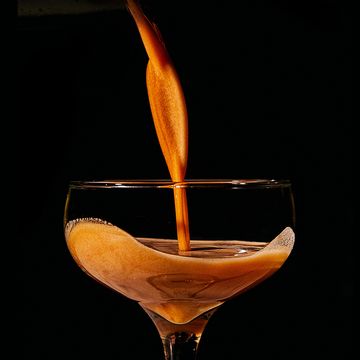Ingredients
- 2 ounces gin -- London dry gin
- 1/2 ounce Cointreau
- 1/2 ounce lemon juice
- 1 egg whites
cocktail glass
Instructions:
Shake well with cracked ice, then strain into a chilled cocktail glass.
There's another version of the White Lady that replaces the lemon juice with white crème de menthe, multiplies the Cointreau by four, adds 1/2 ounce brandy, and omits the gin entirely. If you're going to call that a White Lady, you might as well call a Manhattan a martini. Far more meticulous in matters of nomenclature was Esquire's Lawton Mackall, whose laboratories generated the Boxcar -- merely a White Lady in a sugar-rimmed glass with the minor addition of a dash of grenadine and the substitution of lime juice for lemon.
The Wondrich Take:
1919. The most horrifying war so far in history has ended, brought to a halt not by courage or will or intelligence, but by exhaustion and the national anemia that results from losing half a million men in a single battle. Europe wants nothing more than to forget, to pick up where things left off. But it's not so easy -- everything's gotten out of whack, somehow, and there's an almost ghoulish edge to the nightlife.
Case in point, the White Lady. Invented by Harry MacElhone, bartender at the superchic Ciro's Club, London and late of His Majesty's forces (and New York's Plaza Hotel bar before that), the White Lady is an unhealthy blend of Cointreau (2/3), crème de menthe (1/6), and lemon juice (1/6). It's the color of chlorine gas and unhealthily sweet, like the smell of orchids.
Ten years later, and the force of the horror has dissipated. MacElhone has his own place, now: Harry's New York Bar, in Paris. Hemingway, everybody drinks there. And he's gotten over his shellshock (what else could have induced a competent mixologist to create a drink with two liqueurs and no liquor?). As token of this, he returns to the White Lady and makes a decisive, life-affirming change: The crème de menthe is out, gin is in, and the Cointreau is cut back to a healthy level. On the other hand, now there's an egg white, which makes the drink take on something of the look of decomposing flesh. Every wound leaves its scar.
Whether in spite of or, as we suspect, because of this last detail, the White Lady caught on. It was a particular favorite of the kind of Englishman who, back when there was an empire to make such things possible, would buy a large estate in Kenya (or India or Burma or...) with the last of the family's boodle and leave Britain forever in order to fritter away his youth, good looks, and money in an endless binge of shooting the wildlife, seducing the neighborhood wives, griping about the servants, and inhaling cocktails at the club. The part about the servants aside, it doesn't sound half bad (depends on the wives, we suppose).
